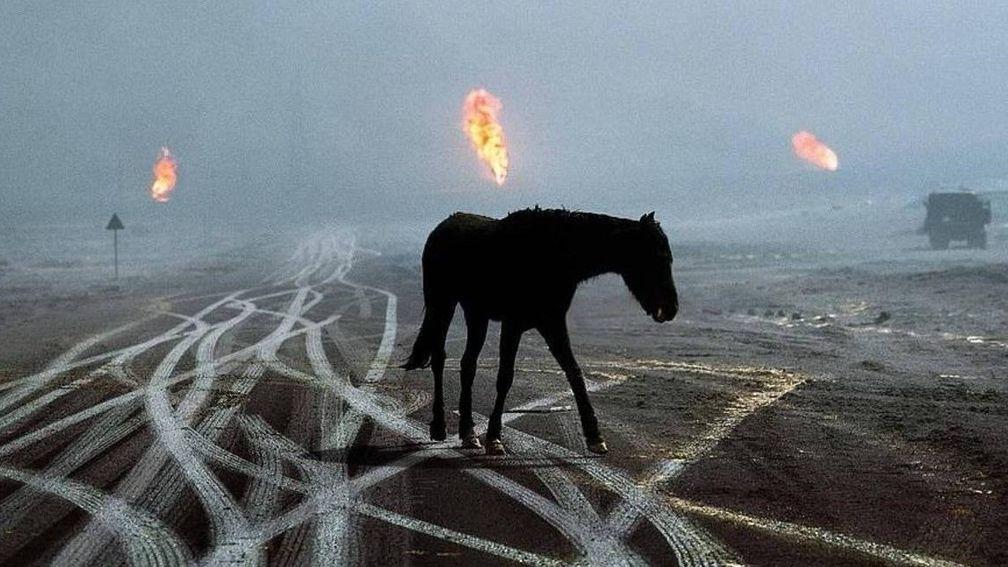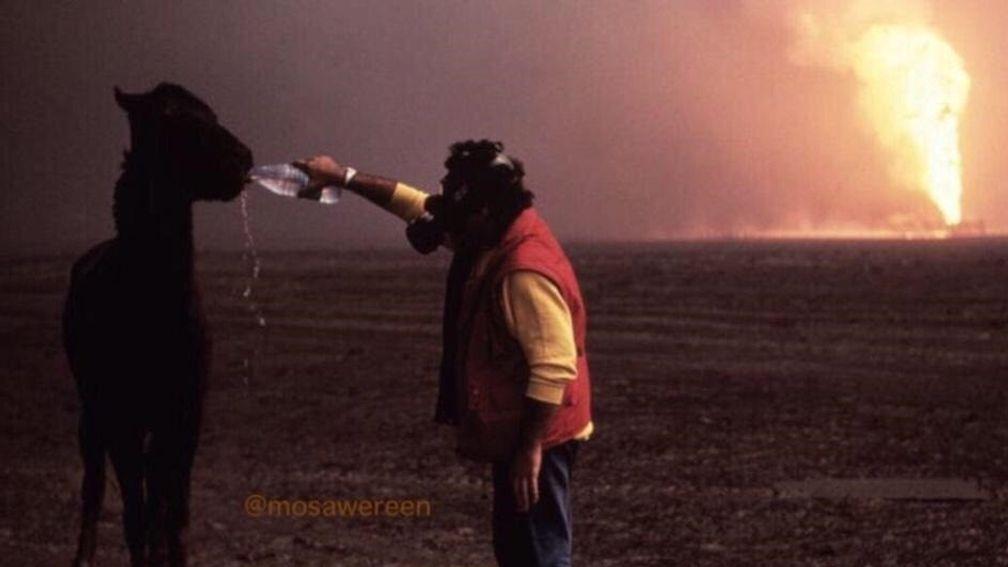Kuwait breeding and racing industries back on feet after devastation of Gulf War
Imports from Britain and Ireland playing their part in a return to normality

Small steps, assisted by imports from Britain and Ireland, are helping Kuwait’s racehorse breeding industry to recover from the horrendous ravages of the Gulf War 30 years ago.
A huge number of horses were victims of the invasion by Iraq, which lasted from August 1990 until the following February, although, as Muhsen Almutairi, one of the prime movers behind recent redevelopment, explained during the Asian Racing Conference in Cape Town last week, some owners went to extraordinary lengths to save their animals.
Almutairi is secretary general of the Farwaniyah Equestrian Club of Kuwait, which runs the main racecourse, named after Sheikh Ahmed Al-Jaber Al-Sabah, the tenth ruler of Kuwait
He explained: “We have a long history of racing in Kuwait and in the 1980s there was a strong local breeding industry, with the horses racing being partly thoroughbreds and partly Arabians.

In total, Kuwaitis bought 220 horses at Tattersalls last year, spending in excess of five million guineas, and a number of those found their way to home territory.
Imports to Kuwait have risen from 82 in 2016 to 127 in 2018, with 18 coming from Britain and Ireland, and they help to sustain 25 racedays a year at Farwaniyah, with individual starters going up from 105 in 2016 to 141 in 2018, although racing takes place four days a week at smaller tracks around the country.
Almutairi added: “In the last two or three years the Equestrian Club has become better recognised and there has been support from the state government, so that the number of horses has increased.
“We are also setting international rules and regulations, and the next step up will be to introduce a ratings system for our horses, similar to that used in other jurisdictions. We can’t stay local with our rules and competition. Horseracing is an international activity now, and we are keen to join the Asian Racing Federation to show our intent.”
Kuwait has already had one success, with its stud book approved by the International Stud Book Committee last November.
Almutairi said: “All our broodmares are recognised and this year we have 20 registered. With the imported mares we hope to have up to 25 newborn foals. We are going to make up to 15 races just for local-bred horses in two years’ time, which we hope will encourage our owners and breeders to buy a good mare.”
Simon Cooper, vice-chairman of the International Stud Book Committee and a Weatherbys director, reported on Kuwait’s progress at a meeting of the Asian-Oceanian Stud Book Committee held in conjunction with last week’s Cape Town conference.
Later he said: “It’s such an uplifting story, given the Kuwaitis’ amazing equine heritage, especially with Arabians, and the fact they lost so many horses in the invasion by Iraq. The stories of horses being kept inside houses so that they could be fed are truly remarkable.
“The Kuwaitis are so passionate and the progress they have made is very encouraging, allowing for the fact they started from zero after the war. And I’m sure the introduction of incentives for local-breds will fuel further imports.”
Read more...
From Hokkaido to Brittany: Bande joins the ranks of French jumps sires
New Triumph favourite Solo a rare entire jumper - but probably not for long
Breed-shaping sire and Horse of the Year A.P. Indy dies in Kentucky at 31
Published on inNews
Last updated
- First mares in foal for Springfield House Stud's Go Bears Go
- First foals on the ground for Haras d’Etreham's Group 1 winner Onesto
- 'His absence will be profoundly felt' - death of Tattersalls' Richard Botterill aged 60
- Study Of Man colt the second foal for Rausing's champion Alpinista
- 'We're thrilled with the momentum he's building' - first mares scanned in foal for Aesop's Fables
- First mares in foal for Springfield House Stud's Go Bears Go
- First foals on the ground for Haras d’Etreham's Group 1 winner Onesto
- 'His absence will be profoundly felt' - death of Tattersalls' Richard Botterill aged 60
- Study Of Man colt the second foal for Rausing's champion Alpinista
- 'We're thrilled with the momentum he's building' - first mares scanned in foal for Aesop's Fables